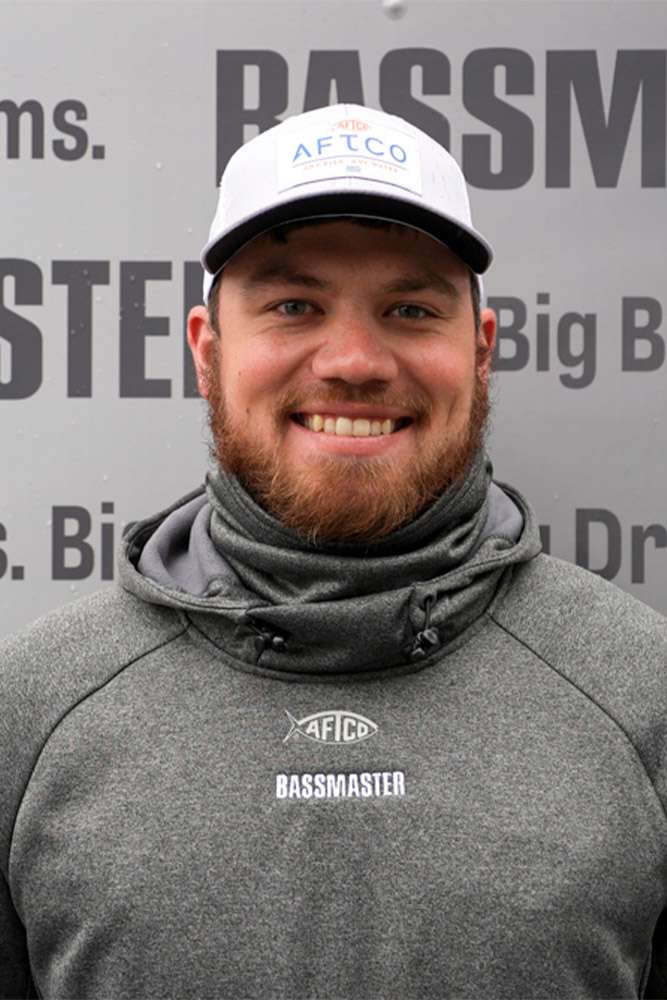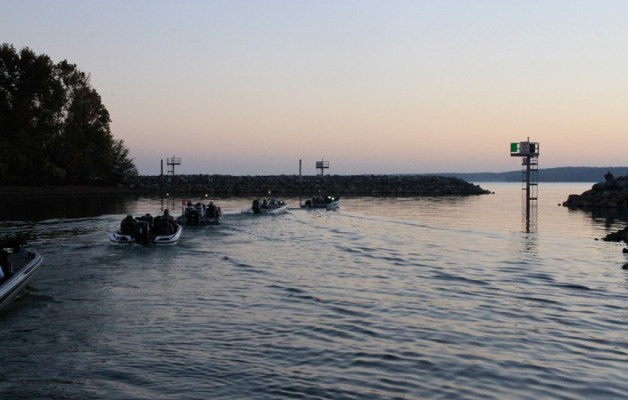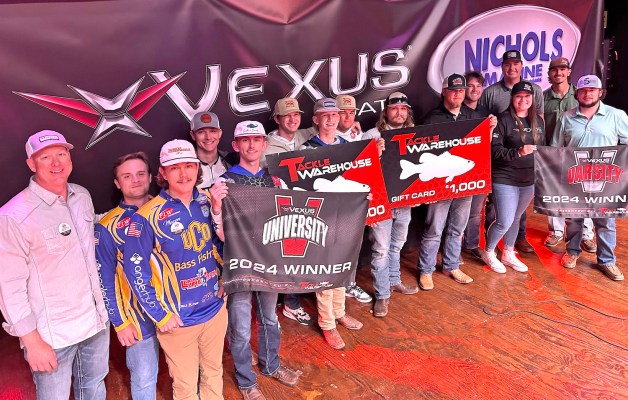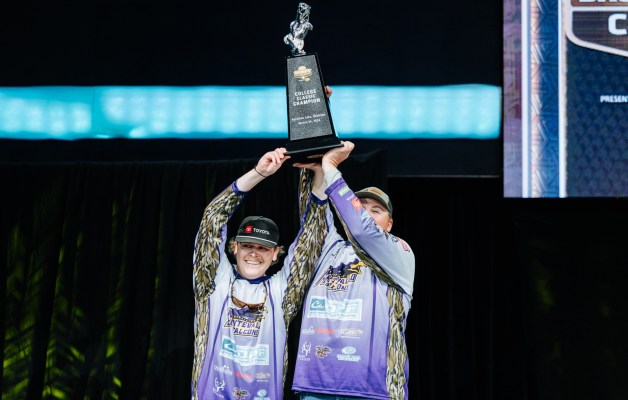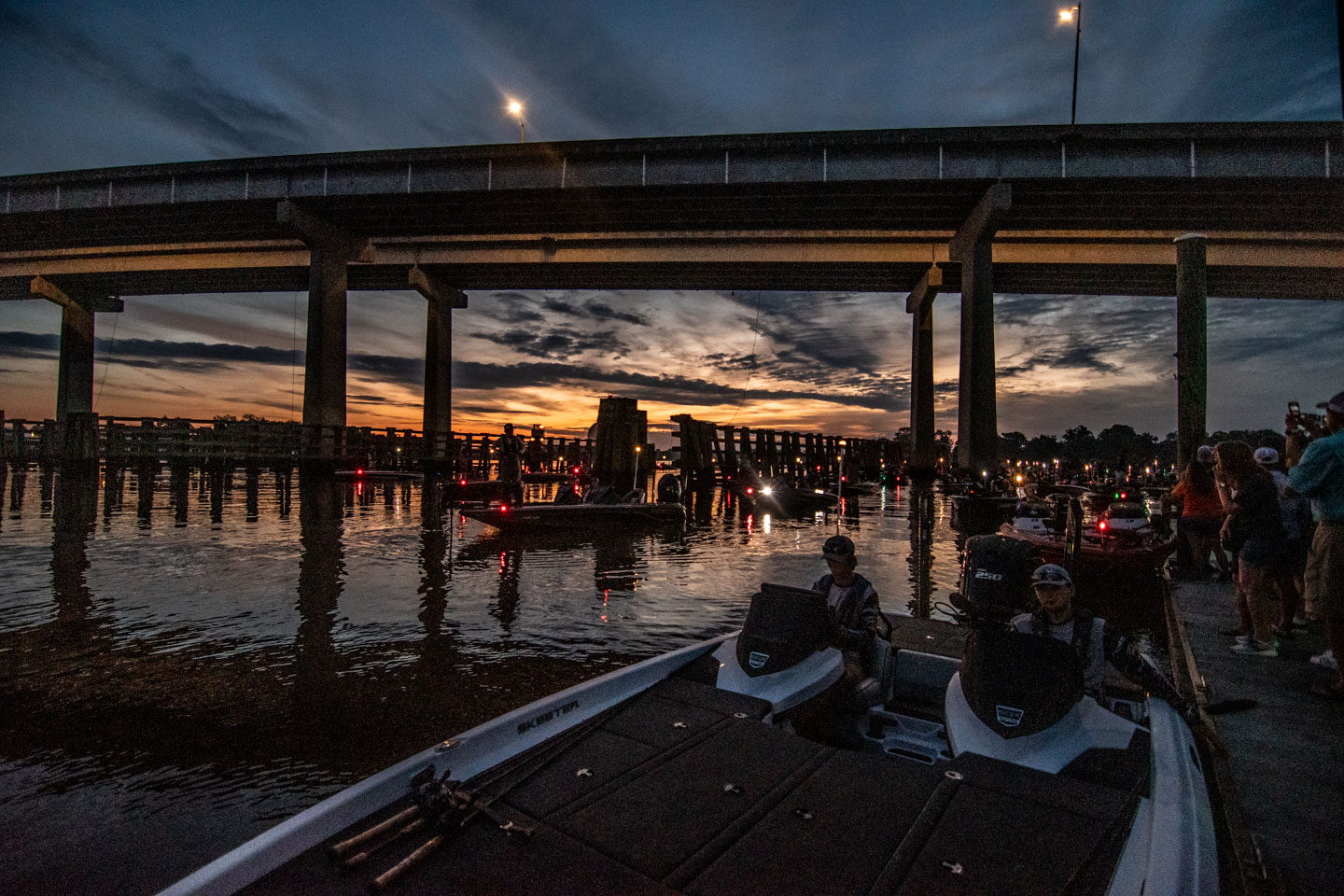
GEORGETOWN, S.C.– As anglers began to take off from Carroll A. Campbell Marine Complex on Day 1 of the Strike King Bassmaster College National Championship at Winyah Bay presented by Bass Pro Shops, a dolphin began to breach the wakes left behind by the bass boats.
“He was in the middle of blastoff at the bridge,” James Willoughby of Montevallo University said. “He was playing in the wakes is what he was actually doing. We hadn’t seen one all week until we were running out.”
It has been one of many sights of incredible wildlife that you don’t see during many other bass tournaments across the country. The brackish water of Winyah Bay makes it possible for a wide variety of aquatic species to thrive.
“Running up those creeks, we would see an alligator on the way up and a dolphin on the way back,” Adrian College’s Hayden Scott said. “We saw a fin come up and we were like, ‘There’s no way.’ We got close and we saw it again and sure enough, it was a dolphin. We see fiddler crabs crawling all over the place.”
Dolphins have been a common sight amongst the field of 120 teams, even way up some of the rivers as anglers have been flipping bushes and trees. Not only did Ben Cully and Hayden Gaddis of Carson Newman saw another famous creature of the sea.
“I’m almost positive I saw a shark running through the Intercoastal Waterway,” Cully said.”One of my main goals was to see something crazy like that.”
Along with their 13-6 Day 1 limit, the Arkansas Tech team of Cole Lamb and Tristan Weaver saw a unique saltwater species break the surface during their time on Winyah Bay.
“I want to catch a tarpon badly. We saw one jump and that has probably been the coolest thing,” Lamb said.
Weaver added,“We saw a dolphin two or three days in a row as well. One jumped up not very far from the side of the boat and scared us.”
Although alligators are a common sight in the tidal areas of South Carolina, the Coastal Carolina team of Andrew Vereen and Connor Cartmell saw a reptile that they estimated to be about 13 feet long.
“We saw a big gator and a lot of other alligators,” Vereen said. “But the dolphins are by far the coolest thing. You’ll be running down the river and you’ll see dolphins beside you around the same areas you’ll catch a bass.”
Of the species caught and reported, Michael Fugaro and Louis Monetti from UNC Charlotte, the 2022 Team of the Year, boated somewhere between a 28 to 30-inch redfish during practice and even have a redfish “hole”.
“We’ve had some fun catching some saltwater fish,” Fugaro said. “We saw sturgeon jumping out of the water too. We were at our redfish hole and we came out and saw a sturgeon jump out of the water. We ran to the next redfish hole and another sturgeon jumped out of the water next to the boat. That was in the span of 10 minutes.”
Limits abound on Day 1
The bass also showed up on Day 1 as all 120 teams brought fish to the scales on the first day of competition and 101 teams brought limits to the scales. Big bites eluded much of the field, however and weights are very tight throughout the leaderboard.
One big bag could vault a team up the leaderboard and into the Top 12.
Willoughby and Jacob Pfundt caught two 4-pounders on their way to claiming the lead with 15-15 while Jacob Welch and Lee Lambrecht from Drury University caught a 7-2 largemouth, one of three bass they caught on the day.
Tide has played a major role so far. Several teams reported that once the incoming tide began to flow into Winyah Bay, the bite shutoff. Different types of cover have played depending on the tide cycle as well.
“Tide plays a role in everyone’s bite out here whether they realize it or not,” Willoughby explained. “I grew up on a tidal fishery so it helps me better understand it out here. It is a unique thing to figure out, I will say. The tide swings, like, 3 feet a day here and it doesn’t stop but for about 30 minutes and then it is back the other way.”
Making the most of a second chance
Last year on their home waters of the St. Lawrence River, James Gillis and Craig Beucler of Clarkson University finished fourth at the National Championship. This year, Gillis is back on unfamiliar waters with new partner Blake Richards, but they are in position for another great finish.
“Making the Classic Bracket (is the goal). It was a dream last year and I was one spot short,” Gillis said. “It would mean even more down here being across the country and what not. We will see.”
Gillis and Richards are currently in 7th-place after Day 1 with 12-10, anchoring their bag with a 5-15 largemouth. It is a whole new environment for the New York natives, but so far they have made the most of it.
“I think it is a pretty patternable deal, but we will see if it pays off. We got a lot of bites today,” Gillis said. “Culling up was an issue late in the day, but I think we have an idea of what we can do. We are going to keep it simple.”
New York is the only state Richards has ever fished for freshwater species, so coming to South Carolina has been a learning experience.
“Around here it is way hotter and the tidal water fishing is so different,” he explained. “You don’t know when those fish are going to fire up but you better hope you are in the right spot at the right time. Here you have a lot of overhanging trees and wood cover. You lose a lot more lures down here.”

